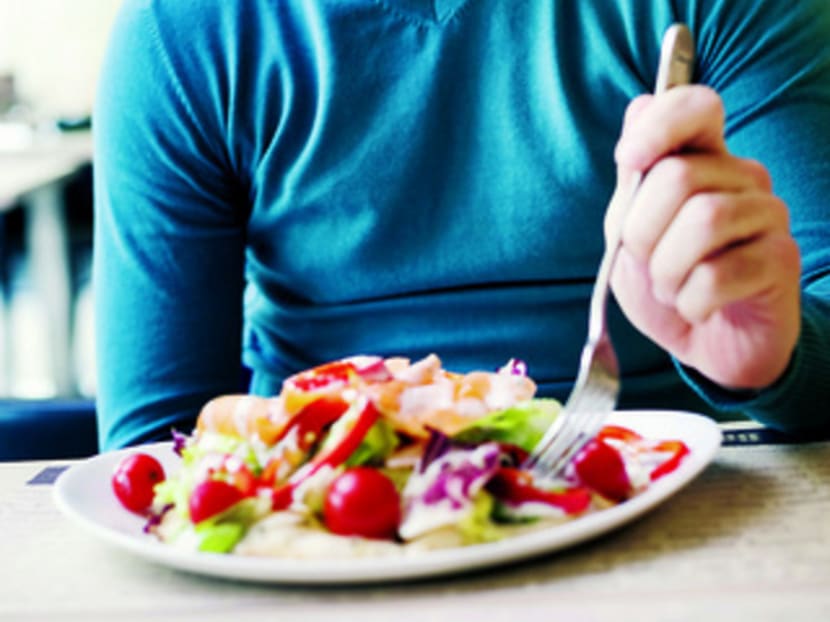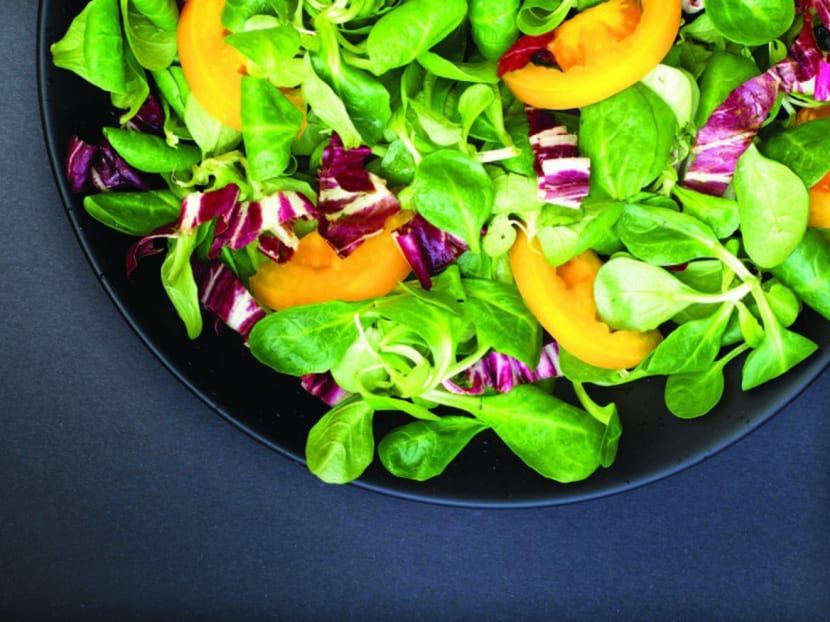Eat to lower cancer risk
SINGAPORE — Every day, about 33 Singaporeans are diagnosed with cancer, which is the leading cause of death here.


SINGAPORE — Every day, about 33 Singaporeans are diagnosed with cancer, which is the leading cause of death here.
Despite the statistics, it is possible to make lifestyle choices that lower cancer risks. For instance, one-third of all cancers have been linked to a poor diet and insufficient physical activity, which are changeable risk factors for cancer, said Dr Lim Siew Eng, associate director (clinical — education) and senior consultant at the Department of Haematology-Oncology at the National University Cancer Institute, Singapore.
What you eat can make a difference in cancer prevention and this is a choice that everyone can make on a daily basis, said Dr Lim. Here are some ways to lower cancer risk at every meal.
1. Processed and red meat
These meats are the contributing cause of colorectal cancer — the most common cancer in Singapore — as well as other cancers such as stomach, breast, endometrium and oesophagus cancer, said Ms Esther Lin, dietitian at National University Hospital (NUH).
Cured and processed meats such as bacon, sausages, ham, spam, corned beef and tinned meat also increase colorectal cancer risk.
“When these meats are consumed on a regular basis, your risk of colorectal cancer would increase, even if they are consumed in small amounts,” said Mr Won Tin Chiang, senior dietitian at National Healthcare Group Polyclinics.
Ms Lin explained that carcinogens are produced when meat is cooked at high temperatures or by charcoal grilling.
“Processed meats are preserved by salting, smoking, curing or the addition of chemical compounds (nitrates and nitrites), which cause the formation of cancer-causing nitrosamines,” said Ms Lin. Nitrosamines damage cells and may lead to the development of cancer.
Choose wisely:
Lower your cancer risk by including more fruit and vegetables, which are rich in dietary fibre, in your diet. Have at least two servings of each daily. According to Ms Lin, fruit and vegetables contain vitamins, minerals, fibre, sterols and antioxidants that may help prevent cancer.
“Antioxidants, such as vitamins C and E, carotenoids and other phytochemicals, are thought to protect normal cells against damage from oxidative stress,” she said.
Dr Lim explained that phyto-chemicals are chemicals that occur naturally in plants. “They provide the colour, taste and smell, influence chemical processes in the body, and are the cancer fighters in our food,” he said.
To reap the benefits of these cancer-fighting nutrients, be sure to eat vegetables and fruit of all colours, advised Dr Lim. Examples include broccoli, kai lan, banana, pineapple, blueberries, brinjal, carrot, orange, tomato and red capsicum.
2. Cured and salted fish
As in the case of processed meats, preserved fish are high in nitrates and nitrites. When consumed regularly, they can increase the risk of nasopharyngeal cancer, said Ms Lin.
Choose wisely:
Opt for oily fish such as salmon, sardines and tuna, which are high in omega-3 fatty acids instead. The Health Promotion Board (HPB) advises aiming for two servings of fish a week.
Furthermore, a 2013 United Kingdom study published in the journal Carcinogenesis suggests that foods rich in omega-3 fatty acids, including nuts and seeds, may help prevent oral and skin cancers.
3. Calorie-dense snacks and beverages
Being overweight or obese increases the risk of certain cancers such as breast cancer in postmenopausal women, as well as the cancer of the colon, rectum, endometrium, kidney, oesophagus and pancreas, said Ms Lin.
“Consuming foods and beverages high in fat and/or sugar adds little nutritional value to the diet and contributes to excess caloric intake, leading to unnecessary weight gain,” she said.
A 2014 study published online in The Lancet Oncology found that obesity, defined as having a BMI of 25 or higher (according to the HPB, for Asians, who generally have a higher percentage of body fat than Caucasians, a BMI of 23 and above is considered obese), is responsible for an estimated 500,000 cancers a year worldwide.
About 11 per cent of Singaporean adults are currently obese.
Alcohol consumption is another risk factor for cancers of the head and neck, liver, colon, breast and oesophagus, said Ms Lin.
“It is thought that acetaldehyde, a product of alcohol metabolism, can affect normal cells and cause damage to the DNA. Alcohol consumption may also lead to an increase in the level of blood oestrogens or other hormones, leading to a higher risk of developing breast cancer,” she said.
Choose wisely:
Reach for wholegrain products such as wholemeal bread and oats when you need a snack. A handful of nuts and seeds can also stave off hunger pangs in between meals.
“Wholegrain foods are better sources of vitamins, minerals and fibre compared with refined grains such as white rice and white bread. Refined grains undergo processing, which removes many of the nutrients, including fibre. Studies have also shown that wholegrain foods have been linked to a lower risk of heart disease, diabetes and cancers, especially colon cancer,” said Ms Lin.
If you drink, do so in moderation. The HPB advises women to drink no more than one standard drink a day, while men should limit themselves to two standard drinks a day.
A standard alcoholic drink is approximately one can (330 ml) of regular beer, half a glass (175 ml) of wine or one nip (35 ml) of spirit.








